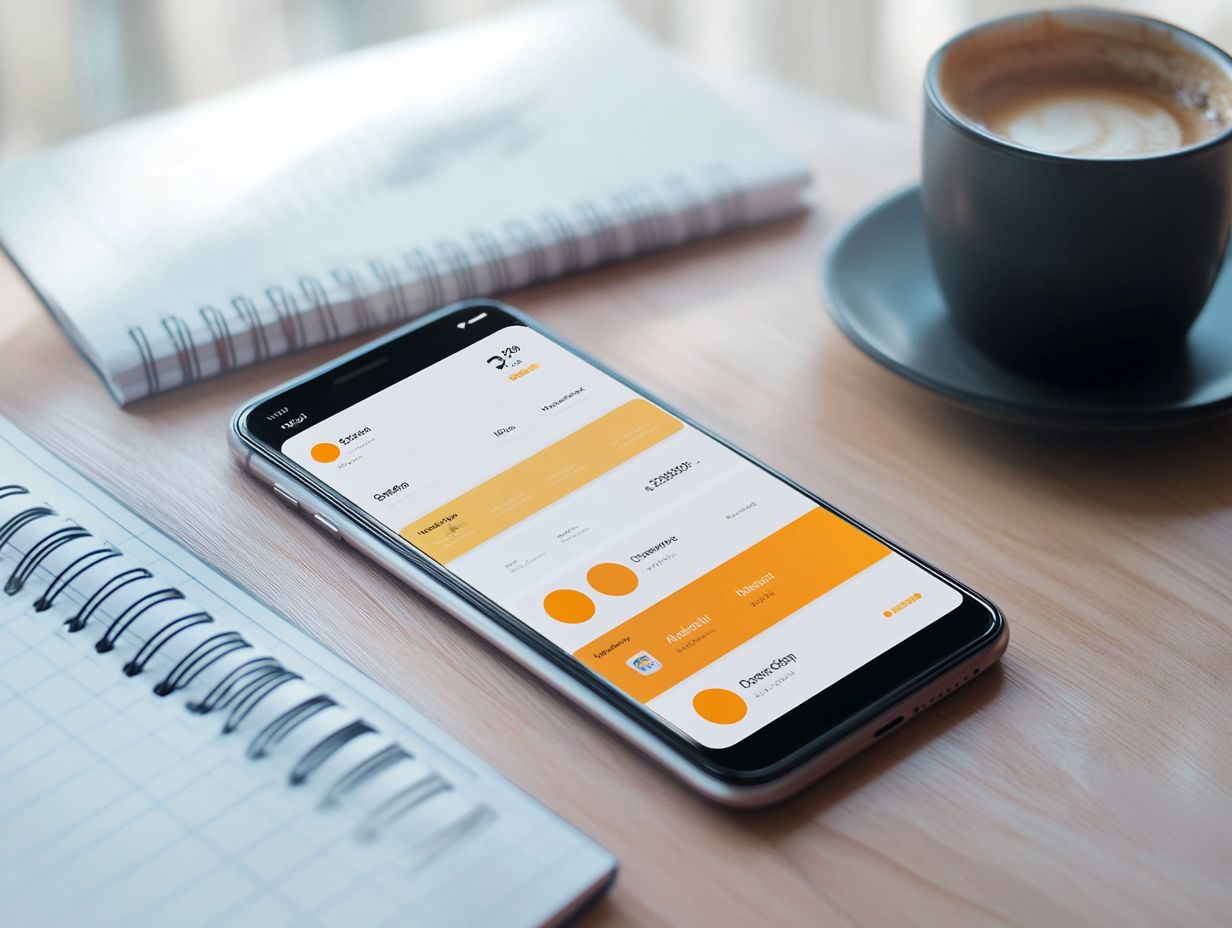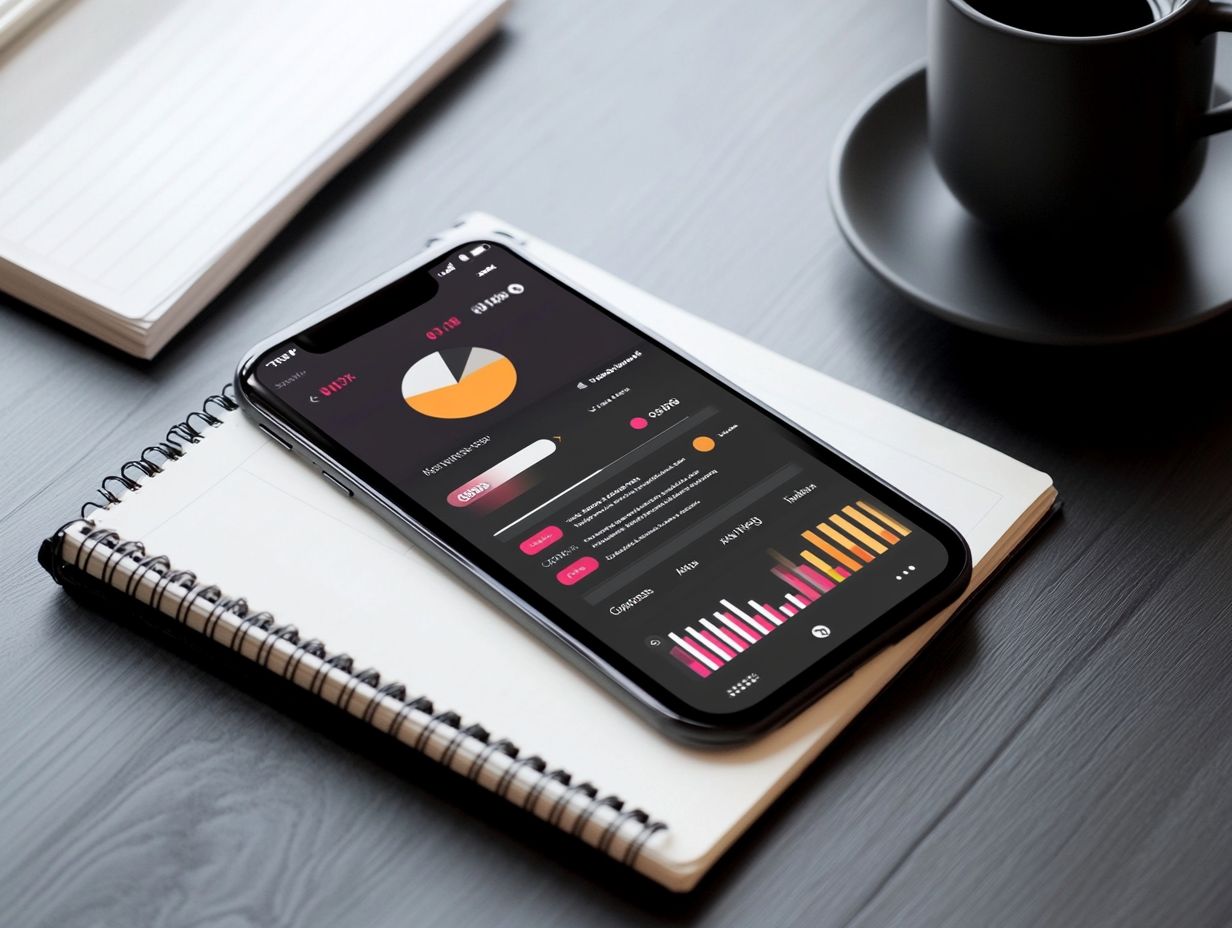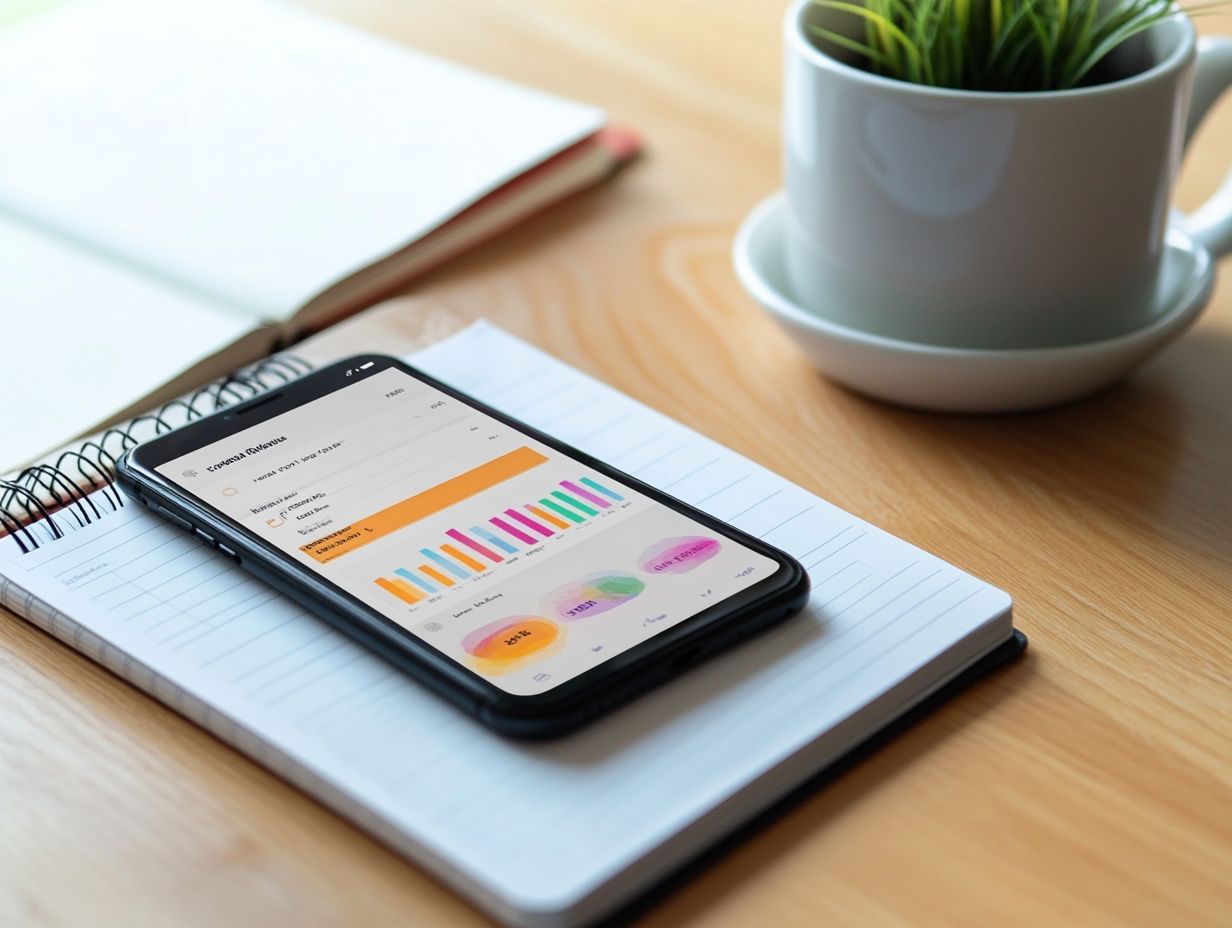5 Best Practices for CRM Mobile App Usage
In today s fast-paced business landscape, a mobile CRM app can truly revolutionize the way you engage with customers and streamline your operations. However, unlocking its full potential involves more than simply downloading the app.
This article delves into five best practices for effectively utilizing a CRM mobile app, guiding you from understanding customer habits to creating a user-friendly design. You ll also uncover key features, address security concerns, and explore future trends, all aimed at enhancing your customer relationships and driving retention through innovative mobile strategies.
Contents
- Key Takeaways:
- 1. Understand Your Customers’ Mobile Usage Habits
- 2. Keep Your CRM App Simple and User-Friendly
- 3. Utilize Push Notifications Strategically
- 4. Integrate with Other Mobile Apps and Services
- 5. Continuously Gather and Analyze Data for Improvements
- How Can a CRM Mobile App Benefit Your Business?
- How Can a CRM Mobile App Help with Customer Retention?
- What Are the Security Concerns of Using a CRM Mobile App?
- How Can a Business Ensure Proper Training and Adoption of a CRM Mobile App?
- What Are the Future Trends for CRM Mobile App Usage?
- Frequently Asked Questions
- What are the 5 best practices for CRM mobile app usage?
- How often should I update my CRM mobile app?
- Why is customizing the CRM mobile app important?
- Can I use the CRM mobile app without an internet connection?
- How can I ensure my employees are using the CRM mobile app correctly?
- Is it important to integrate the CRM mobile app with other business tools?
Key Takeaways:

- Understand your customers’ mobile usage habits to optimize your CRM app for their needs and preferences.
- Keep your CRM app simple and user-friendly to enhance the user experience and increase adoption.
- Strategically use push notifications to engage with customers and provide timely and relevant updates.
1. Understand Your Customers’ Mobile Usage Habits
Knowing how your customers use mobile devices is key today! This insight gives you the power to tailor your customer management software (CRM) strategies effectively, and leveraging CRM analytics can ultimately elevate the overall customer experience and satisfaction.
By observing how your customers engage with their mobile devices whether they prefer browsing, making purchases, or seeking support you can uncover invaluable insights into their behaviors and preferences.
Use powerful CRM tools and analytics to track these engagement patterns and segment your audience accordingly. This data-driven approach facilitates a more customized marketing and customer service experience, ensuring your offerings align seamlessly with individual needs.
Comprehending the complete customer journey is vital; it enables you to refine your CRM goals and optimize every touchpoint. This ensures every interaction matters!
2. Keep Your CRM App Simple and User-Friendly
A simple and user-friendly CRM software interface is essential for ensuring that your sales team can swiftly adopt and utilize the platform, ultimately enhancing user training and engagement.
When the interface is intuitive, you can navigate seamlessly, reducing the learning curve and minimizing frustration which often leads to a higher adoption rate.
Effective CRM tools typically offer features like customizable dashboards, drag-and-drop functionality, and comprehensive reporting capabilities, all meticulously crafted to simplify your experience.
As you invest in training programs that blend real-world scenarios with interactive sessions, your employees will feel more comfortable embracing these tools, fostering a culture that truly values data-driven decision-making.
Streamlined data management not only boosts productivity but also significantly enhances overall business performance, allowing your teams to focus on nurturing client relationships instead of grappling with complex software.
3. Utilize Push Notifications Strategically
Strategically utilizing push notifications within your CRM can significantly elevate customer engagement, fostering timely interactions that enhance satisfaction and retention.
By leveraging CRM automation strategies, you can customize push notifications to cater specifically to various customer segments, ensuring that the content delivered resonates with individual preferences.
This targeted approach strengthens your bond with your audience and maximizes the effectiveness of each notification.
You can use CRM analytics to evaluate how well these notifications perform, offering valuable insights into customer behavior and responsiveness.
When you integrate push notifications with your email marketing efforts, you create a cohesive communication strategy that reinforces messages across multiple platforms, ultimately driving higher engagement and conversions.
4. Integrate with Other Mobile Apps and Services

Integrating your CRM with other mobile apps and services is crucial for streamlining processes and meeting organizational needs. This approach ultimately results in improved data management and accessibility.
This integration gives you the power to synchronize data across platforms, allowing you to maintain accurate and up-to-date information effortlessly.
Solutions like Zoho CRM and Pipedrive boast robust integration capabilities with a variety of applications, facilitating seamless workflows. For instance, by integrating Zoho CRM with project management tools, you can track project progress while keeping customer interactions front and center.
Data integrity is crucial. Using APIs (Application Programming Interfaces) creates smooth connections between applications and minimizes errors.
With these integrations, you can unlock the full potential of your CRM system, significantly enhancing your overall productivity and effectiveness.
5. Continuously Gather and Analyze Data for Improvements
Continuous data gathering and analysis are essential for enhancing your CRM, allowing you to monitor sales metrics and assess CRM performance through powerful reporting tools.
These processes significantly improve the user experience while ensuring that the information you store remains accurate, relevant, and up-to-date.
Regular data audits are crucial, as they help you pinpoint inconsistencies and errors that could jeopardize data integrity.
By embracing best practices for CRM reporting, you can turn raw data into actionable insights, giving you a clearer understanding of customer behaviors and preferences.
Using CRM analytics is vital in shaping your strategic decision-making. This enables you to optimize customer relationships and fine-tune your marketing efforts more effectively.
This approach ultimately fosters long-term loyalty and drives growth.
How Can a CRM Mobile App Benefit Your Business?
A CRM mobile app can revolutionize your business! It enhances customer experience through real-time access to CRM data and equips your sales teams with precise tools for accurate sales forecasting and efficient CRM customization and optimization strategies.
Harness mobile CRM capabilities now to set ambitious targets, such as boosting client engagement and optimizing your sales process.
Imagine your sales representatives being able to swiftly update client information or track interactions while on the move, eliminating any delays that could jeopardize follow-ups or deal closures.
Businesses like real estate agencies and retail stores have successfully embraced mobile CRM solutions to ensure timely communication with customers, addressing inquiries promptly and effectively.
This proactive approach not only enhances customer satisfaction rates but also elevates retention, ultimately contributing to a healthier bottom line for your business.
What Are the Key Features to Look for in a CRM Mobile App?
When selecting a CRM mobile app, focus on key features such as user-friendly interfaces, robust data management capabilities, and customization options that align with your specific organizational needs. Additionally, consider the best practices for managing CRM change to ensure a smooth transition.
The inclusion of push notifications can significantly enhance user engagement, offering timely reminders and updates that keep everyone in the loop.
Seamless integration with your current tools helps create a cohesive work environment. These features streamline your daily tasks and empower your teams to adapt the CRM to their unique workflows.
Flexibility in customization is essential, allowing you to tailor the CRM to fit your specific processes. This tailored approach increases user acceptance and satisfaction, ultimately leading to improved adoption rates.
The result? Enhanced business efficiency and productivity that can propel your organization forward.
How Can a CRM Mobile App Help with Customer Retention?

A well-designed CRM mobile app can be a game changer for you. It significantly boosts customer retention by fostering personalized communication and timely engagement, especially when you choose from the top 5 CRMs for mobile workforce management.
This boosts overall customer satisfaction. This platform acts as your central hub for capturing and analyzing customer behaviors through strong CRM data analysis.
By looking into patterns of purchasing, browsing, and past interactions, you can craft email marketing strategies that feel uniquely tailored for each individual.
Such insights streamline your targeted offers and nurture a deeper connection between your brand and customers. By facilitating proactive communication through a mobile app, you can address customer needs in real-time, strengthening relationships and cultivating loyalty.
This exciting mix of personalized content and real-time support builds a strong foundation of trust that keeps customers eager to return!
What Are the Security Concerns of Using a CRM Mobile App?
When using a CRM mobile app, it’s essential to tackle security concerns regarding data integrity and the protection of sensitive customer information from unauthorized access. To enhance your approach, consider following best practices for using CRM software by implementing robust encryption protocols to safeguard your data during transmission and at rest.
This ensures that only authorized personnel have the keys to decode and access this invaluable information. It’s also wise to incorporate user authentication measures, like two-factor authentication, to verify the identities of individuals accessing the app.
To enhance your security posture, adhere to best practices in data management. Conduct regular audits of your data storage practices and ensure compliance with relevant security standards, such as GDPR (a regulation that protects user data) or CCPA (California Consumer Privacy Act).
By following these guidelines, you can significantly reduce the risk of data breaches and maintain the trust of your customers.
How Can a Business Ensure Proper Training and Adoption of a CRM Mobile App?
Ensuring proper training and adoption of a CRM mobile app is essential for its success. It all starts with comprehensive training programs that equip you and your sales team with a deep understanding of the vital CRM features, including the best practices for CRM reminder settings.
These programs should incorporate engaging hands-on workshops, giving you the chance to practice using the app in real-world scenarios. It s equally important to emphasize ongoing support, which bolsters your confidence.
Having access to easily digestible resources and a responsive help desk can greatly enhance your learning experience. Implementing feedback mechanisms is key to refining these training initiatives.
This allows you and your team to voice suggestions and share any challenges you encounter. By fostering this iterative process, the training evolves to meet your needs, ultimately empowering you to harness the app’s full capabilities with ease.
What Are the Future Trends for CRM Mobile App Usage?
Emerging trends in CRM mobile app usage suggest a notable shift towards increased reliance on automation strategies and enhanced analytics. To stay ahead, consider incorporating innovative CRM practices that are designed to significantly elevate your customer experience.
As you navigate these changes, consider the growing importance of AI integration for predictive analytics. This streamlines your processes and paves the way for personalized interactions tailored to the unique needs of each customer.
By analyzing extensive data, you can anticipate customer preferences and behaviors. This enables you to craft more relevant engagement strategies.
This transformation in customer relationship management helps you meet your CRM goals and propels growth, boosting overall business performance.
Ultimately, by harnessing these technological advancements, you can cultivate deeper connections with your clientele, laying the groundwork for long-term success.
Frequently Asked Questions

What are the 5 best practices for CRM mobile app usage?
- Regularly update the app.
- Customize it to fit your company’s unique needs.
- Utilize offline capabilities for data access anytime.
- Train employees for effective usage.
- Integrate with other business tools for seamless operations.
How often should I update my CRM mobile app?
Update your CRM mobile app every 3 to 6 months. This keeps you equipped with the latest features and fixes, enhancing user experience and following best practices for CRM software configuration.
Why is customizing the CRM mobile app important?
Customizing the CRM app tailors it to your company s specific needs. This boosts both efficiency and productivity.
Can I use the CRM mobile app without an internet connection?
Yes, many CRM apps offer offline capabilities. This means you can access and update your data, even in areas with limited internet.
How can I ensure my employees are using the CRM mobile app correctly?
Proper training ensures employees use the app effectively. Provide resources like user guides or tutorials for better navigation.
Is it important to integrate the CRM mobile app with other business tools?
Absolutely! Integrating with tools like email and calendars streamlines your processes. It also enhances data management and analysis.






